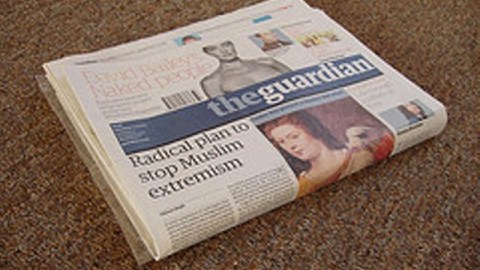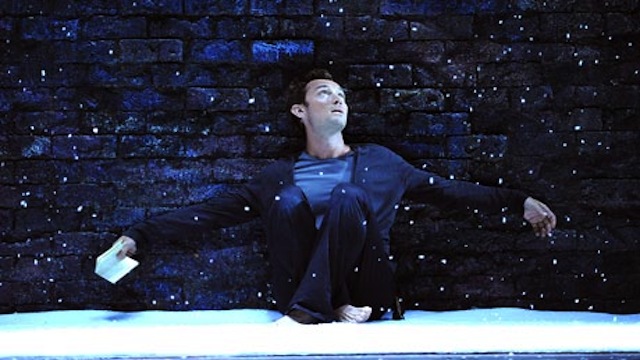The Strange Death of Radical Journalism

The Strange Death of Radical Journalism
And so to another inconvenient truth that should trouble anyone interested in the clash of ideas, real passion in journalism, polemic and a radicalism worthy of its name. Iconic, radical journalism is on life support in Britain. Michael Foot would have understood that, and his late, dear departed nephew, Paul Foot already knew it before he departed so prematurely.
To that decline can be added bold, risk taking, analytical journalism and the depth that should come with it. Just where are those writers who have a broader World view, and who want to change it? Should their absence bother writers and readers from the Right? Well, yes, since without what Karl Marx described as a dialectic, there is less trenchant, meaningful argument. Where is the bold, crusading Daily Mirror? When will The Guardian begin to emerge from its seemingly endless internal debate, and take up the cudgels? Who rails against conventional wisdom? And where are the journalists in that fine campaigning, irascible tradition of William Connor, Claud Cockburn and of course, Paul Foot?
The answer may be that they are out there somewhere in the blogosphere, or maybe the best of them have given up altogether and gone to work in corporate PR. And while there are some that continue to hit the mark, all too often they are relegated and confined, since the bold newspaper editors of yesteryear have largely been replaced by over cautious figures who live in fear of the bean counters. Only the cartoonists are given free reign. Newspaper editors may wonder why their circulations keep falling. They may be tempted to blame the internet and belatedly erect pay walls that readers won’t pay for. But their decline may be symptomatic of a deeper malaise. Just look at the wider retreat over the past twenty odd years. Serious in depth coverage of Parliament has largely evaporated, although the Daily Telegraph recently gave it a timely boost over the expenses scandal. There are few in depth interviews of prominent political or public figures, and so much of the coverage is leavened parochialism of the ‘who’s up, who’s down’ variety, which also feeds directly into an increasingly comment driven BBC coverage. This is largely focussed on process and personality, and explains the obsession with imminent crisis and leadership challenge. In this race to the bottom, the political class like to dumb down to tabloid level, desperately trying, ties off, in mock estuarial, to prove that it can mix it with ‘the street’.
There are less resources for the investigative journalism that once characterised the Sunday Times ‘Insight’ pages, and of course there are fewer and fewer foreign correspondents, whose own depth of knowledge and understanding of different parts of the World once made some of them serious national figures. Foreign correspondents are of course expensive – or are they? The truth may lie some way in between, for massive amounts are squandered on anchors who need to be briefed as to where Somalia might be, or on the Editor’s favourite courtiers. The dwindling band of foreign correspondents, of whom I was once one, usually have to make do with far less, and work in far harder more difficult conditions that their domestic counter-parts.
The twenty four hour news culture hardly helps, but neither does the cost cutting culture that puts poorly paid staff, with remarkably little historical or folk memory, in charge of the shape and direction of some of our newspapers. One veteran of the old Daily Herald and Daily Mirror – who operated at a time when typically there would be sixty staff on a news floor night shift instead of today’s three, told me; “We don’t have many editors of real courage and stature, independent minded fighting spirits”. Although interestingly, he believes that the Daily Mail’s Paul Dacre is a “courageous editor” who runs against this trend, and he is probably right.
I recently bumped into former Chancellor Alistair Darling who was minding his own business drinking a cup of tea in Portcullis House. He had recently succeeded where most other Brits have failed – in getting published in the New York Times. He agreed that the British press now largely lacks the breadth and depth of analysis that can be found in some parts of the North American media. Which is not to take away from journalists such as Larry Elliott, Polly Toynbee, Jonathan Freedland, Seumas Milne, or heavyweight TV hitters such as Michael Crick or Paul Mason, but that for some of the most incisive, in depth and occasionally humorous writing, some editors turn to American writers such as Frank Rich, Paul Krugman and EJ Dionne to fill the domestic void. Although the Guardian has on occasion tried to ape the New York Times, we have little of that fine New York tradition here – still less the informative longer essays, reviews and investigations that are such a feature of many of the New Yorker, Atlantic or Vanity Fair.
And then of course there has been the cloying, unbelieveably dreary reduction of so much political journalism and commentary to the lowest denomination party politics and politicians who have littered Westminster these past two decades, droning on about the ‘Third Way’ and writing ‘memos’ to one another, hoping to be spotted and patted. And here, in the so called ‘centre ground’ of consensual journalism and politics, we have seen some of the worst offences. There has a grown a deep prejudice towards virtually any writer who goes against conventional wisdom, whether it be John Pilger on the Left or Simon Heffer on the Right. They are dismissed as extreme, or bonkers, or both – a convenient way of closing down argument without having to display any. This has been aided and abetted by journalists who provided “intellectual” justification for the New Labour project. Andrew Marr’s history of modern Britain TV series was a classic example of this, as are the columns of David Aaronovitch, Andrew Rawnsley, Martin Kettle, and John Rentoul – whom the late Michael Foot would have enjoyed mocking and exposing in his heyday.
Therein lies a great opportunity for some of our weeklies, magazines that the marketing men would doubtlessly describe as ‘niche publications’, but which are able to navigate a different course from many of what Oldie Editor Richard Ingrams describes as the “boring newspapers, which tend to print the same thing”. While the tabloids shrivel, the broadsheets decline and the incessant chatter of the blogosphere and ‘Tweet-osphere’, intensify there is plenty of evidence to suggest that people will actually spend money on good writing and original argument, even if they go puce with anger at some of it.





